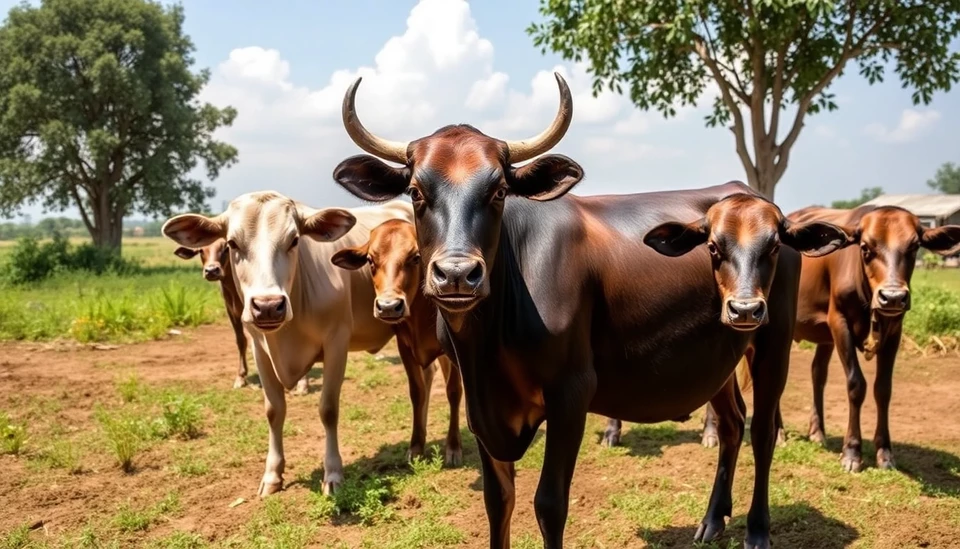
In Nigeria, a remarkable transformation is taking place within the agricultural sector as farmers are increasingly turning to artificial insemination techniques to breed heat-resistant cattle. This progressive shift not only aims to enhance the resilience of livestock in the face of rising temperatures but also seeks to secure the livelihoods of farmers amid challenging climate conditions.
The initiative is being spearheaded by local farmers who recognize the pressing need to adapt their herds to the realities of climate change. With average temperatures in Nigeria escalating, cattle that were once well-suited to the environment are now struggling to cope with the heat. This adaptation process is critical as it impacts both the health of the animals and the economic viability of farming practices.
The farmers are utilizing advanced reproductive technologies to achieve their goals, specifically by employing artificial insemination. This technique allows for the selective breeding of cattle that possess desirable traits, such as superior heat tolerance. Through this method, farmers can introduce specific genetic characteristics that can significantly increase the resilience of their livestock, enabling them to better withstand the heat stress that has become more prevalent in the region.
According to agricultural experts, breeding cattle that demonstrate strong heat resistance is not merely a matter of improving animal welfare. It is essential for safeguarding food security in a country where livestock farming is a key part of the economy and culture. By focusing on this innovative breeding approach, farmers envision a future where their cattle can thrive even in the face of extreme weather conditions, ultimately leading to increased productivity and sustainability.
This development is part of a broader trend observed in various agricultural communities globally, where similar breeding strategies are being employed to tackle the challenges posed by climate change. The rising adoption of artificial insemination signifies a shift toward more scientifically informed practices that harness the power of genetics to improve agricultural outputs and mitigate risks associated with environmental fluctuations.
Moreover, the efforts being made by Nigerian farmers do not just stop at cattle breeding. They are also exploring other agricultural innovations that complement their objectives, such as implementing water conservation techniques and improved feeding strategies that can further enhance the resilience of their operations. This multifaceted approach highlights the farmers’ commitment to creating a sustainable agricultural future that can withstand the tests of time and climate variability.
As the concept of climate resilience gains traction, initiatives like these bolster the importance of local wisdom combined with scientific advances. Nigerian farmers are not only pioneering a critical movement toward adaptive agriculture but also setting an example for farmers in other regions who are facing similar challenges brought on by climate change.
The ongoing commitment to breeding heat-resistant cattle through artificial insemination represents a significant leap toward securing a sustainable future for Nigeria's agriculture and ensuring that farmers can continue to thrive despite the harsh realities of a warming planet.
In conclusion, the efforts being made by these farmers are a testament to human ingenuity and adaptability. As they embark on this journey toward better cattle breeds, they highlight the indispensable role of innovative practices in redefining agriculture for future generations.
#NigerianFarmers #ArtificialInsemination #HeatResistantCattle #ClimateResilience #SustainableAgriculture #InnovationInFarming
Author: Peter Collins




